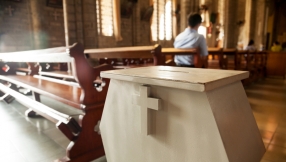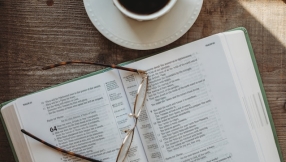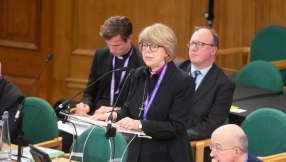
The Bishop of St Albans has told the House of Lords that requiring coroners to record gambling addiction in suicide cases would boost "the Government's suicide prevention efforts".
Bishop Alan Smith was speaking on Friday in the Second Reading debate in the Lords on his Coroners (Determination of Suicide) Bill to make the change in coroners' suicide recordings.
He quoted Public Health England's recent evidence that "gambling harms" are responsible for 409 suicides annually.
"That translates to nearly eight per cent of recorded suicides in 2020," he said.
Bishop Smith, a vice-chair of Peers for Gambling Reform, argued that the Bill "would be a great asset to the Government's suicide prevention efforts".
"I hope it will allow us to give much more support and earlier intervention to those who are at risk of suicide," Bishop Smith said.
His private member's Bill gained a Second Reading but does not have the support of the Government so is very unlikely to become law.
Responding for the Government, Baroness Scott of Bybrook said: "If the Government were to support this Bill and change the scope of what the coroner would determine, to include why a person took their life, this would also have to apply to all other types of inquest conclusions."
She added: "It would be impractical or difficult for coroners to collect consistent data on identifying whether a gambling addiction or other reasons were factors in a person's suicide."
Under the current law, she said, "the scope of the coroner's investigation is to determine who died and how, and when and where they died."
The question of 'how' in most cases equates to "by what means", she explained.
"The investigation is designed to be a limited and proportionate fact-finding exercise, and under Section 10 of the 2009 Act, coroners are prohibited from appearing to determine any question of criminal liability against another person or civil liability," Baroness Scott said.
Supporting the Bill, Baroness Bakewell, also a vice-chair of Peers for Gambling Reform, spoke of her concern for young people.
"From the information on the Gambling with Lives website, it would seem that those most at their wits' end are young men under 30, on the threshold of their adult lives, who become trapped and feel unable to escape through any other means than ending their own life," she said.
Baroness Bakewell also mentioned the problem of gambling addiction on some Armed Services personnel returning from active duty.
"Those returning from serving their country in extreme conditions in Iraq, Afghanistan and other places of conflict are often suffering from post-traumatic stress disorder and unable to find employment. The online gambling sites advertised widely on television, and the slot machines that promise so much but deliver so little, are both readily available to them.
"Sadly, this only increases their sense of isolation and desperation, resulting in self-harm and, ultimately, suicide in some cases," she said.
Baroness Bennett said that "taking control of the gambling industry" would boost the Government's "levelling-up agenda".
"The poorest communities are suffering the most from the impact of the gambling industry being out of control. Taking control of the gambling industry would be a step towards levelling up," she said.
Also supporting Bishop Smith's Bill was Baroness Meacher who said: "I am personally aware of the appalling consequences for families of the gambling addiction of the breadwinner.
"It is a terrible social problem, and we need to have better data about it and act to reduce it."













